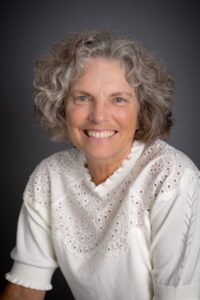 by Mary Brook
by Mary Brook
Book clubs are an important part of the life-enrichment program in assisted living communities.
Research shows that reading helps residents retain their long-term memory, focus, and concentration.
In her article, “Being a Lifelong Bookworm May Keep You Sharp in Old Age,” Marina Koren (Smithsonian 2013) talks about giving our brains a workout. Reading and retaining words requires more mental energy than watching TV or playing solitaire on an iPad. According to Koren, “In particular, people who participated in mentally stimulating activities over their lifetimes, both in young, middle, and old age, had a slower rate of decline in memory and other mental capacities than those who did not.” It’s important to read, and what better way than joining a book club?
Activity directors are always looking for lectures, classes, and other meaningful experiences to add to their programs. A book reading by a local author at an assisted-living community is an opportunity for the author to interact and connect with seniors. It’s a way of giving back to the community as well as promoting a book.
Publishers often ask their writers to make appearances at libraries, literary nights, or book festivals, but not all authors feel comfortable reading in public. Assisted-living communities offer a relaxed environment for an author to hone his reading skills. If you’re a new author an author just getting started, or an author who likes to give back, assisted-living communities are worth your time.
It’s important for seniors to read. Here are five good reasons:
- Socialization: in addition to giving your brain a workout, a book club can be social. It brings residents together to share their ideas about books they read. They may have fun and meet someone new.
- Expanding horizons beyond the walls of assisted living. Reading brings the outside world to the resident’s world. Books offer a glimpse into the lives of other people, different cultures, and current events.
- Practicing effective communication skills in a book club helps residents clarify what they have read in the book. Residents will question each other about ideas and opinions. In addition, they will provide feedback to each other when discussing characters and plot.
- Setting goals for reading is a good thing for residents. Sometimes residents become overwhelmed if they feel pressure to join an activity or group, especially if they were not social when living in their home. Reading is an individual activity and can be done at one’s own pace. Whether the resident chooses to join the conversation or sit and listen is up to them, but either option is better than staying in their room.
- Getting out of one’s comfort zone. Sometimes residents get comfortable and won’t try new things. When they commit to joining a book club they may have to read books they ordinarily wouldn’t read. And they may have to discuss topics they’re not exposed to on a regular basis.
Reading more and improving long-term memory in seniors through the book club is just as important as exercising. The mental challenge of reading and retaining information helps delay the onset of dementia.
As Dr. Zaven Khachaturian, science advisor to the Alzheimer’s Association stated in an article in USA TODAY, “brain-challenging activities build a reserve of neuronal connections, making it take longer for the Alzheimer’s process to destroy enough neurons for symptoms to emerge.”
As residents read and discuss the material in a book, they retain the information and help the brain stay young. Reading at any age is good for your brain. It helps improve concentration, focus, and thinking skills. Coupled with a book club, reading can make a positive and rewarding experience for seniors in assisted living.
If you’re looking for a book for your book club, try Happy for No Reason by bestselling author Marci Shimoff. Why not learn how to reset your happiness button? Take the Happiness Quiz from Happy for No Reason. According to Aristotle, “Happiness is the meaning and the purpose of life, the whole aim and end of human existence.”
Local authors who want to give back to the community, contact a local assisted-living facility and start a book club. Offer to read a book or even help others read a book. When you reach out everyone will benefit.
Mary Brook, Senior Living Specialist, is an expert in the Senior industry with more than 20 years of experience helping seniors and their families with the aging process. She received her Bachelor of Arts degree in Communications from The Ohio State. She currently holds certifications as an RCFE Administrator, Yoga, Group Fitness, and Personal Training. Her experience as a Life Enrichment and Marketing Director, Director of Resident Care, and Associate Executive Director in several RCFE facilities throughout the United States gives her an in-depth perspective when helping seniors improve the quality of their lives. Reach Mary at mzm.brook@gmail.com.
